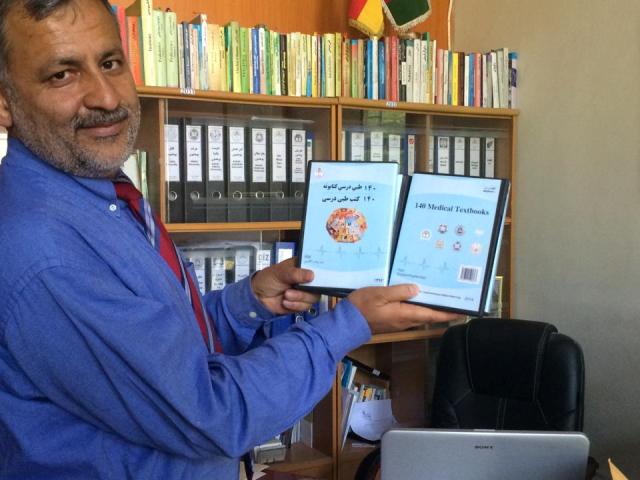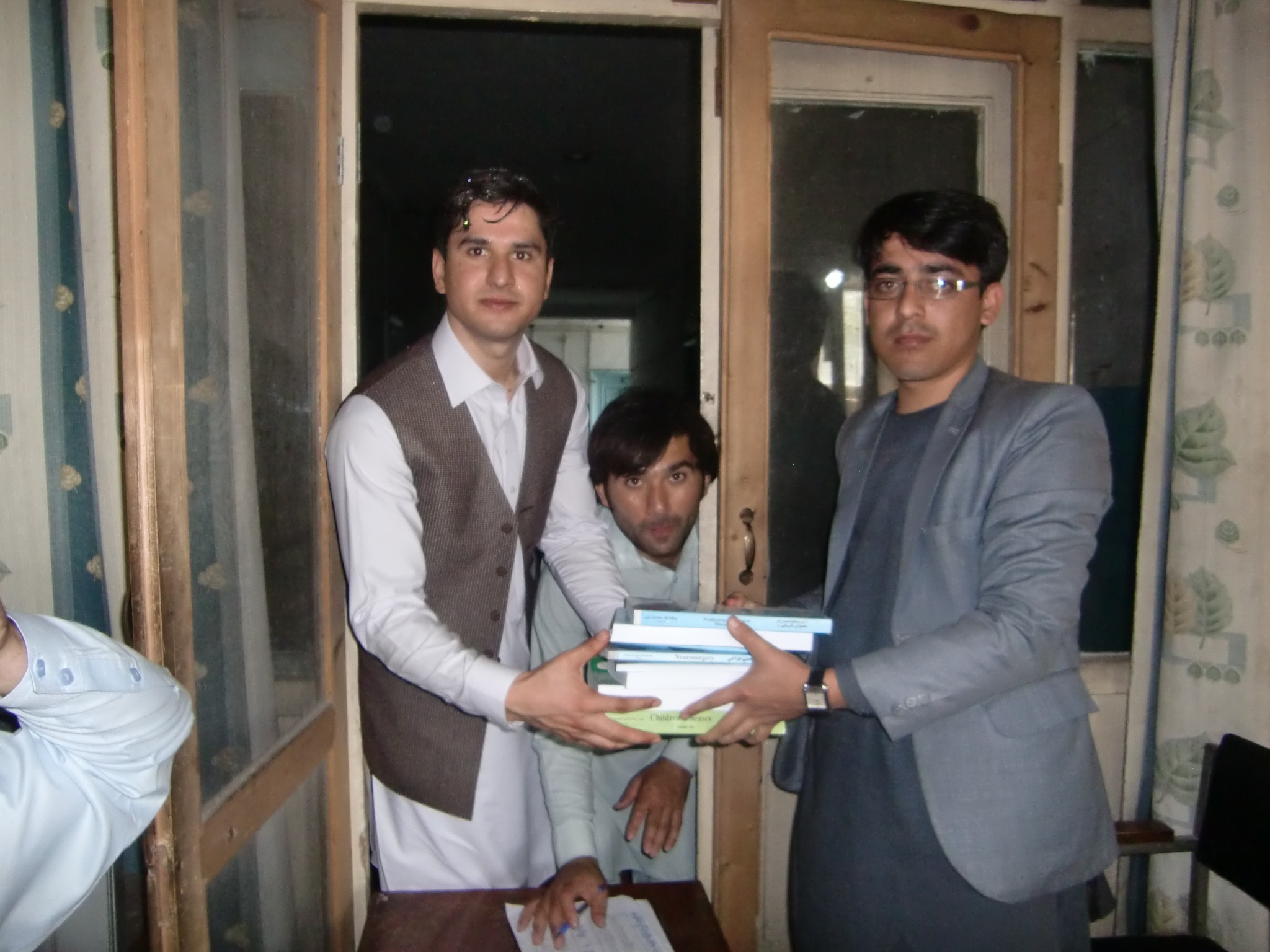Ladies and gentlemen,
I cordially welcome you all to my presentation. I am very happy that you are here and attending this session.
As you may know, my name is Yahya Wardak, and I was born in Afghanistan. This is also the reason why I would like to speak about one of my projects in my birth country.
As a child, I wanted to become a medical doctor to help my countrymen and women. In 1992, I finished my medical studies or program, and because of the war, I couldn’t return to Afghanistan. At that time, my parents were in Hamburg, so I moved there. During this time, I was unhappy because I didn’t work in Afghanistan and couldn´t fulfill my childhood´s desire.
After a long time, I finally went to Afghanistan with my wife and two children in 2009.
We stayed at Nangarhar University for more than 5 months. It was an exciting and very interesting time.
I decided to work with Afghan lecturers on developing and publishing textbooks. You may ask, “Why?”
Here are the reasons:

At this university, I was shocked to see that many students were using 30-year-old notes and so-called “chapters” instead of textbooks, which were difficult to read.
There is an old Greek saying: “A student without books is like an unarmed soldier.”
All over the world, textbooks play a key role in education.
Besides teachers, good and up-to-date textbooks are very important for the quality of teaching and learning.
If the students and lecturers could have good and updated books, the students would also be good doctors, engineers, and so on. The quality of the teaching materials affects the quality of the students.
So, I was employed as an advisor by the Afghan Ministry of Higher Education (MoHE) and got an office there. After contacting German developmental agencies, they supported me and my project.
In 2010, my family returned to Bonn, and I stayed there and started publishing textbooks for the students.
I hired some employees and began by collecting manuscripts and delivering them to printing companies in Kabul. Additionally, I had to write several proposals in order to receive funding every year.
It was extremely difficult to realize one of my dreams at this time; I was prepared to work many hours a day for several years.
Almost all of the books were written in the Afghan languages of Pashto and Dari by Afghan scholars. But we published some books written by German, British, and American professors too.
By 2022, we could publish 266 textbooks in the fields of medicine, psychology, veterinary medicine, pharmacy, engineering, agriculture, science, education, business administration, administration and public policy, economics, language and literature, and journalism.
My suggestion to the Afghan Ministry of Higher Education and the donor community was to develop a 5-year National Textbook Program: every year, 100 new textbooks should be published.
But unfortunately, neither our ministry nor the international community were involved in publishing textbooks for Afghan students, even though they had spent billions of dollars over the past 20 years (from 2001 to 2021) in Afghanistan on other not-sustainable so-called projects.
But my small project was nevertheless very visible, successful, and sustainable. The lecturers were very motivated to update their teaching materials, and many of them wrote several new textbooks. Hundreds of thousands of students are using our textbooks every day. This is very rewarding for me.
Thank you very much for listening. Is there any question?
Yahya Wardak
Bonn, 29.12.2022
Bonn, 29.12.2022


